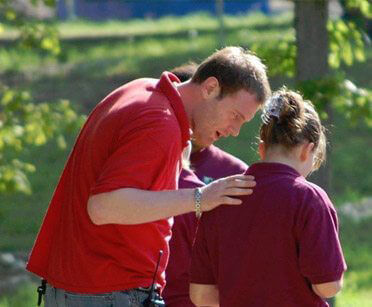The vast majority of residential treatment centers across the country should be categorized as behavior modification generalists. Unlike Calo, they use rewards and consequences (i.e. level systems, tokens, points, time-out rooms, forming-up in lines, lists of earned privileges) to treat a multitude of issues and disorders.

This generalist, one-size-fits-all approach poses many problems, the primary one being that it applies a behavioral fix to a relational deficit. Early adopted teens, preteens and those with developmental trauma are in need of relationship-based interventions. They don’t need new behavior first, they need a new internal compass. Behavior modification is qualitatively shame-producing for teens and preteens who already struggle with profound shame.
Specialist care is needed for these emotional and behavioral issues
Another issue with behavior modification is that it often mimics the traumatic environment some of our traumatized and attachment-disordered children came from. Traumatized and emotionally wounded teens and preteens have already learned how to survive in controlling environments. They know how to keep quiet and look compliant in order to escape punishment. Behavior modification may appear to produce changed behavior for these teens and preteens, but it does not create an internal change. Simply put-special care, specialist care, is needed for these emotional and behavioral issues, particularly those that derive from childhood trauma.
Calo is different.
It was created with the need for specialty care in mind. Calo adopts a true relational-based treatment approach to create change from the inside out… heart first, and behavior second.
We heal the effects of childhood trauma
At Calo, we treat a very specific subset of the struggling teen and preteen population: we heal the effects of childhood trauma using an attachment paradigm. Emotionally unstable teens and preteens with a history of trauma (adoption, sometimes abuse or neglect) and wounded in the areas of empathy, altruism, and relationship formation are our focus. Healing this damage requires that lasting change be created within the context of safe relationships, not by virtue of consequences and rewards.
- A teen or preteen adopted at birth who is struggling to follow most family rules and will not allow guardians to shape his/her behavior.
- A teen or preteen with a neglect history who is charming but manipulative (a survivor) and only shows his/her true character at home.
- A teen or preteen with an orphanage or foster care history whose basic coping resources are quite limited.
- A teen or preteen with little capacity to regulate emotional responses and who suffered from a neglectful and reckless biological mother.
